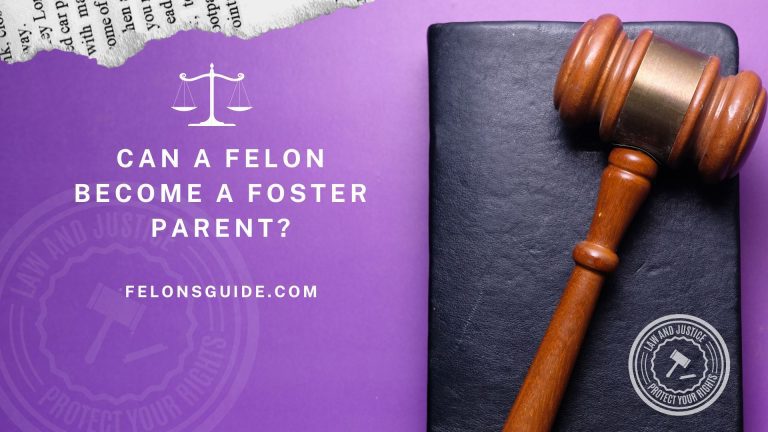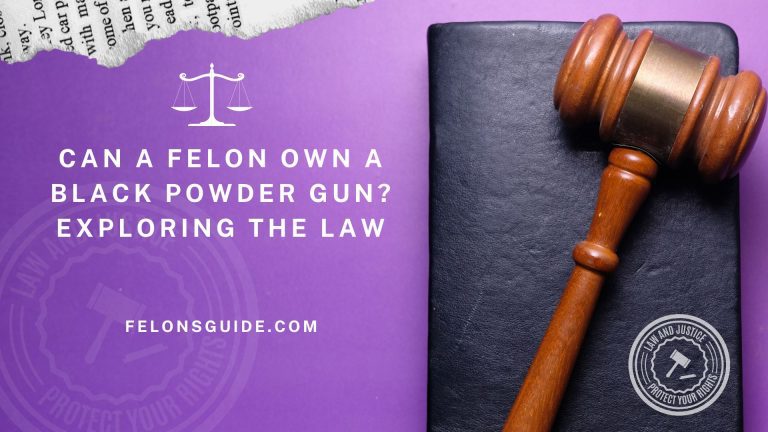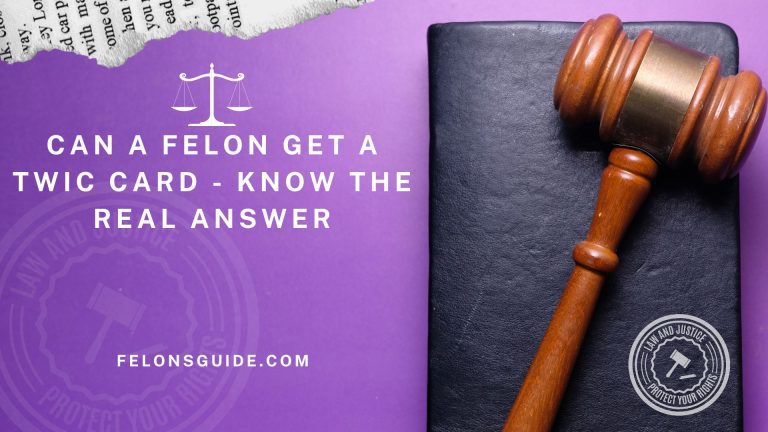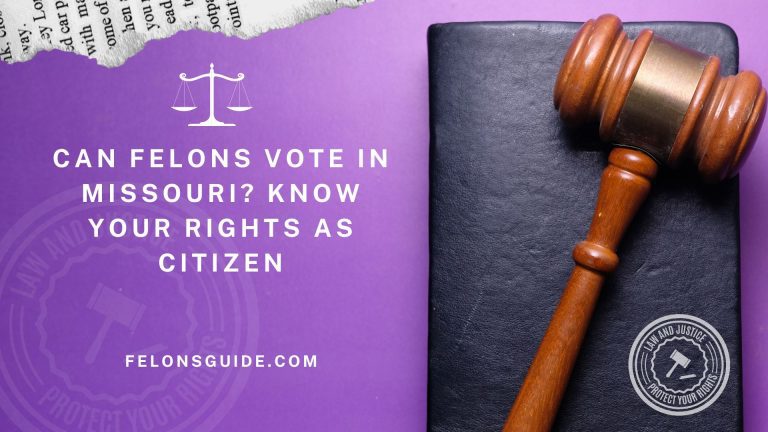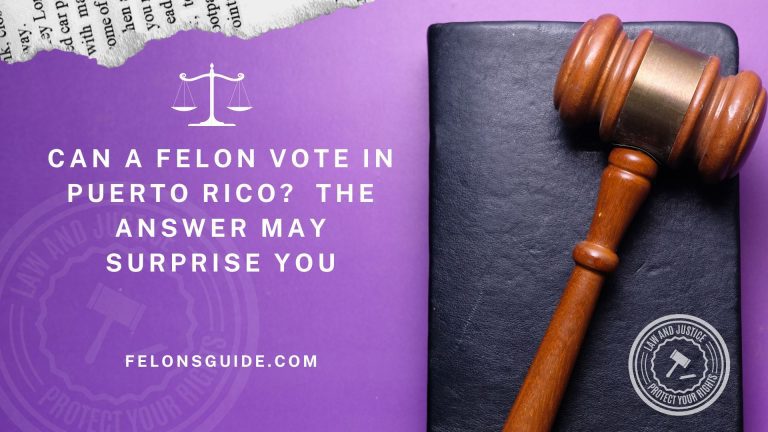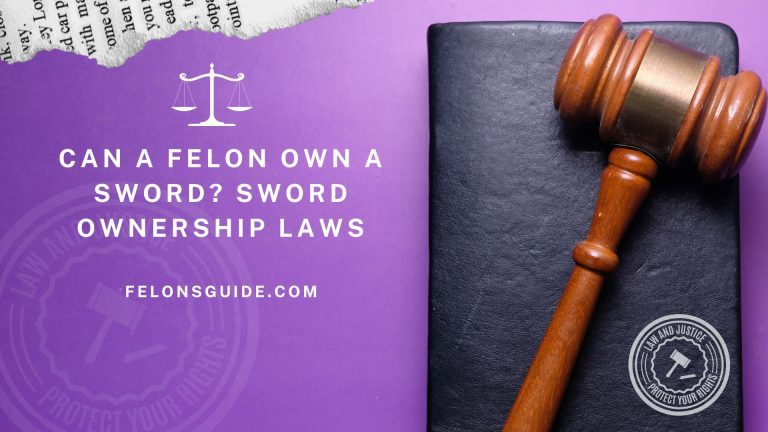Are Felons Allowed to Hunt? Everything you need to know
Hunting is a popular pastime enjoyed by millions of people across the United States. It’s a chance to get out into nature, enjoy the great outdoors, and possibly bring home some fresh game. However, if you’re a convicted felon, you may be wondering if you’re allowed to participate in this activity. After all, there are strict rules and regulations surrounding hunting, and you don’t want to get into any legal trouble. In this article, we’ll take a closer look at whether or not felons are allowed to hunt and what you need to know if you’re in this situation.
Are Felons Allowed to Hunt?
So, are felons allowed to hunt? The answer to this question depends on a few different factors, including the state you’re in, the nature of your felony conviction, and the type of hunting you’re interested in. Let’s break it down.
State Laws Regarding Felons and Hunting
Each state has its own laws regarding whether or not felons are allowed to hunt. In some states, felons are allowed to hunt with some restrictions, while in others, they may be permanently banned from hunting.
For example, in Alabama, felons are not allowed to hunt with firearms or bows, but they can hunt with a muzzleloader. In California, felons are banned from owning or possessing any firearm, which includes hunting rifles and shotguns. In Colorado, felons can’t hunt for ten years after their conviction, while in Florida, they may be able to regain their hunting rights after a certain period of time has passed.
If you’re unsure about the laws in your state, it’s essential to do your research and speak with local law enforcement officials to determine what your options are.
Nature of Felony Conviction
The nature of your felony conviction will also play a role in whether or not you’re allowed to hunt. For example, if you were convicted of a wildlife-related crime, such as poaching, you may be permanently banned from hunting.
On the other hand, if your felony conviction was unrelated to hunting or wildlife, you may be able to regain your hunting rights after a certain period of time has passed, or with the help of an attorney.
Type of Hunting
The type of hunting you’re interested in may also impact whether or not you’re allowed to participate. For example, if you’re interested in hunting with a firearm, you may be subject to stricter regulations than someone who is hunting with a bow or muzzleloader.
It’s important to understand the rules and regulations surrounding your preferred type of hunting, as well as any restrictions that may apply to felons.
Also Read: Can a Felon Get a Liquor License? Exploring the Legalities and Requirements
Frequently Asked Questions
Q: Can felons hunt with a bow?
A: In some states, felons may be allowed to hunt with a bow, but this will depend on the specific laws in your state.
Q: Can felons hunt with a muzzleloader?
A: In some states, felons may be allowed to hunt with a muzzleloader, but this will depend on the specific laws in your state.
Q: How can I regain my hunting rights after a felony conviction?
A: The process for regaining your hunting rights after a felony conviction will vary depending on the state you’re in and the nature of your conviction. In some cases, you may need to wait a certain period of time, while in others, you may need to petition the court or seek the help of an attorney.
Conclusion
So, are felons allowed to hunt? It’s not a straightforward answer since it varies by state and the nature of the felony conviction. It’s crucial to research the laws in your state and consult with local law enforcement officials to determine your options.
If you’re a convicted felon and you’re interested in hunting, don’t give up hope. There may be options available to you, such as hunting with a bow or muzzleloader or seeking legal assistance to regain your hunting rights.
However, it’s essential to follow the rules and regulations surrounding hunting and avoid any activity that could result in additional legal trouble. Always make sure to obtain the necessary licenses and permits, and follow all safety guidelines to ensure a successful and legal hunting experience.
In conclusion, felons may be allowed to hunt depending on the state they reside in and the nature of their felony conviction. It’s essential to research and understands the laws in your state, follow all regulations, and seek legal assistance if necessary. With the right knowledge and guidance, felons can enjoy the thrill of hunting while staying within the bounds of the law.
